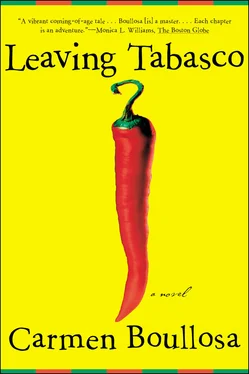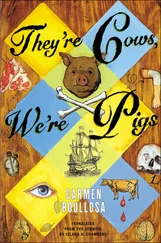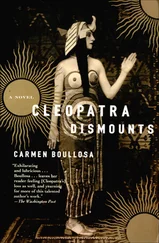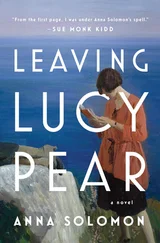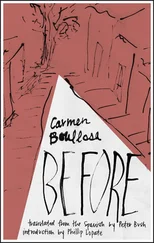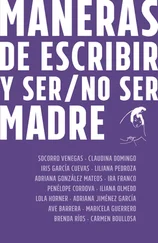“Anyway, he did go off to New Orleans and he built a fabulous house there. And we all thought that we’d seen the last of him in Tabasco. But we’d underestimated him. The fact that the whole of Tabasco had turned against him didn’t crush his spirit at all. So believe it or not, he organized a pirate expedition. On the Mississippi he fitted out two ships with guns and sailed across the Gulf of Mexico and came in via Paraíso, where he joined up with his German allies and reached St. John the Baptist and captured it in a surprise attack! It wasn’t that he was a strategic genius.
He was just impulsive and whimsical. He never thought twice before doing anything. His blood was constantly on the boil, his brain worked overtime, but to think a thing over, to plan an act intelligently — that simply went against his grain. His victory was short-lived. I mean, he caught us off guard, because while he was away in New Orleans building his house and arming his pirate ships, we’d been decimated by an epidemic of yellow fever, a terrible business, really horrible to get, with lots of people dying, but even so, how could the state capital remain in the hands of pirates? At the start, you were just feverish, you know, it was like a mild cold with stomachaches thrown in, and an awful stuffiness, but then if it didn’t go away, you got really sick, with your eyes all bright and unable to bear the light, and if it went beyond that, you were in for the worst of all endings, because you’d get an anxiety attack, then start vomiting up black stuff, as black as coffee grounds, and get delirious. It didn’t matter how much morphine you took to stop the stomach pains or how many preparations of adrenaline you used to control the bleeding, there was nothing that worked to stop the convulsions or the hemorrhaging. Death was inevitable. They say that the corpses — well, so my uncle Juan told me, he was studying to be a doctor at the time — they had lesions in the duodenum and ulcerations in the heart. If they looked bad on the outside, they were even worse on the inside.
“So, because the epidemic of yellow fever had cut a swath through young and old, sparing only the very old and the very young, it was left to the kids to take up arms against Sentmanat. It was an army of youngsters who beat him and dragged him away to have him shot at Talpa without waiting around for any sort of trial. He arrived there with his body in shreds because they had literally dragged him there, like a load on a rope, bouncing around, more dead than alive, so they had to shoot him lying down, as there was no way they could keep him on his feet. They say that they considered tying him to a cross but immediately rejected the idea because it was a sort of blasphemy with his being an out-and-out rascal and the cross recalling memories of Christ. When a letter arrived at St. John the Baptist from Mr. MacIntosh — the man who came up with the idea of spreading rubber between two layers of cloth, the millionaire inventor of waterproof raincoats — he also had factories for making rubber sponges and was a buddy of Sentmanat in various enterprises and a personal friend of presidents and one of the richest men in the world — anyway, when his letter arrived, begging clemency for Sentmanat, it was too late. The deadly deed had been done. They say that once all the hullabaloo over Sentmanat’s death had died down, the sisters of my grandmother and my aunt Dorita sailed off in the same schooners that had brought the pirates and headed for New Orleans, going straight to my aunt’s house, and there they looted it, each one of them carrying off whatever she fancied, dresses, furniture, jewelry, paintings or sculptures, while Dorita wept buckets and asked them for mercy, reminding them that she was their sister, and Sara answered, ‘Whose sister? If you didn’t have the guts to stand up for my kids when your husband was leaving them without a square yard of land to their name, I don’t know whose sister you reckon you are, you’re certainly not mine. I’ve only come to collect what belongs to me, what you and your husband stole from my lands in his business deals with the Germans. This stuff is what you bought with the cakes of rubber your husband and his cronies went to sell in Europe in those English ships.’
“Then they sailed home with the schooners loaded with treasures. That’s where we got that Ming dynasty vase in the living room, along with the other bits and pieces, though my grandmother didn’t go to New Orleans, she was too young at the time, but her sisters saved her share of the booty, because all the Ulloa girls had this marvelous sense of right and wrong. And I think that includes even Dorita, in her way.
“Nobody knows what happened to the poor creature after that. I’ve heard it said that she turned into a loose woman, but really I don’t believe it, for me that was all vicious gossip, because she was an Ulloa after all, so how can they think she’d get involved in that sort of thing, I mean, she wasn’t born in the street, without a family name, without pride, without a mother and father. She’d had enough to put up with, losing that husband of hers, well, more than enough, considering the way he died, and after losing the affection, the love, the respect of her family, well, she was in no mood to go and live it up then, was she?
“Still, they do say that she went sailing up and down the Mississippi in the little boat she and Sentmanat had left Tabasco in, when we couldn’t take any more of his excesses, selling her favors to all and sundry, and recruiting girls for that line of business, and that she made so much money at it that the marvelous house she’d had in New Orleans couldn’t even compare with the one she had built in Baton Rouge, and that, fat and elderly, she now made out she was French, her pockets crammed with currency worth a lot more than the obsolete bills my uncles had piled up only to find they were good for nothing but heating the bread oven, because they had trunks jammed with banknotes that lost value overnight. This country is a disaster, I tell you, a total disaster …”
The Thursday of the following week was a holiday, and Mama had the bright idea to take all three of us to the beach. She borrowed the priest’s car, which he’d taught her to drive. It was the first time we’d seen her drive, but she did it with a manly aplomb we’d never have imagined of her. She wore a lovely white cotton dress enlivened with embroidery, with a sky-blue belt around her waist, possibly a bit out of style, but it made her look very youthful. She put on for the first time some dark glasses—“to see the road better”—and these took away any suspicion of looking old-fashioned. She was wearing a pale pink lipstick, with a slight sheen to it, the same color as her nails, which were always maintained in impeccable condition by the adoring girls at the beauty salon. “Your mom is such a lady, so fine …” About her neck she had a flimsy white, almost transparent, scarf. Grandma wore a short-sleeved blouse over a white skirt with dark markings and buttons down the front. They both put on wide-brimmed hats, Mama’s white, Grandma’s gray.
We traveled the usual road out of town, but then turned off toward Villahermosa. The road surface looked perfect to me, and though there were only two lanes, I thought it was a spacious and modern highway we were speeding down, almost flying. Grandma, who shared my opinion, complained about the speed, and I, all tense with my mouth wide open, was thankful that she did. To our right we saw the first of a whole line of gleaming dunes, almost golden in color, alternating with plantations of papayas, bananas, and coconuts, all so methodically laid out by human ingenuity and Mother Nature that it seemed reality itself till we collided with a mental bump against the true, ragged reality of the sea front. There chicozapote was growing in the middle of the great branches of enormous trees, a hard gemlike stuff sprouting out of the tender leaf tips, like a violent aberration in the center of the clustering growth. So many mangoes hung from the crowded trees that here and there they lent the foliage a yellowish tint. The giant kapoks were home to innumerable orchids and creepers, small universes of variegated greens. In trees along the edge of the highway, monkeys swung in hordes, and there was one moment when a flock of flamingos followed our car, cackling above our heads.
Читать дальше
